Contrary to popular belief, schizophrenia does not mean having more than one personality (so-called “split personality”). It is more about a split between what the sick person thinks, does, and feels. Most often, schizophrenia is manifested by maladjustment to the situation of feelings and behavior. Consequently, there is a disturbance in the functioning and disintegration of the human personality. The schizophrenic cannot critically and realistically evaluate himself, their environment, and his relationships with other people. A sick person unknowingly runs away from the outside world and moves away from people close to him.
Schizophrenia is a chronic disease that needs to be treated. The condition has many types (e.g., catatonic, hebephrenic, undifferentiated), although we most often encounter paranoid schizophrenia.
The risk of developing this mental illness is about 1%. It affects men and women equally. It usually happens before the age of 30![]() .
.
Schizophrenia is a mental illness with a gradual course. Often, the relatives of the patient notice some disturbing changes in their behavior, but they find several explanations for them (e.g., traumatic experiences or stress). Schizophrenics gradually withdraw from life, begin to be distrustful of others, introverted, and suspicious. They even avoid contact with other people, which ultimately leads to the sick person stopping leaving the house.
A frequent phenomenon is the schizophrenic's indifference to significant matters, uttering words that are inadequate to the situation. Treatment for schizophrenia usually lasts for a long time. The course of the disease can be continuous and progressive or episodic; then, there are periods of intensification of the symptoms and temporary recovery.
One specific cause of schizophrenia has not been found so far. Currently, it is believed that schizophrenia is caused by various factors. The disease is likely influenced by genetics, events during prenatal development, and environmental factors that affect the human mind.
Scientists are studying the relationship between genetic disorders![]() and schizophrenia – you have a higher risk if there is a family history of this condition. The degree of risk varies depending on the degree of relationship.
and schizophrenia – you have a higher risk if there is a family history of this condition. The degree of risk varies depending on the degree of relationship.
Other factors that may potentially be involved in the pathogenesis of schizophrenia include problems related to the course of pregnancy and childbirth![]() , for example, infections occurring in the mother during pregnancy or complications of childbirth.
, for example, infections occurring in the mother during pregnancy or complications of childbirth.
It is also noted that numerous environmental factors![]() may be conducive to the occurrence of schizophrenia (particular risk in this case applies to people who are predisposed to schizophrenia, e.g., due to the family burden of this entity). Examples of such factors include the use of psychoactive substances, but also growing up in a dysfunctional family, and experiencing social isolation or persecution by other people.
may be conducive to the occurrence of schizophrenia (particular risk in this case applies to people who are predisposed to schizophrenia, e.g., due to the family burden of this entity). Examples of such factors include the use of psychoactive substances, but also growing up in a dysfunctional family, and experiencing social isolation or persecution by other people.
The phenomena described above are indeed treated as possible causes of schizophrenia. However, researchers also focused on other aspects – they were interested in why patients experience, for example, psychotic disorders or negative symptoms of schizophrenia.
Currently, the most attention is paid to disturbances in the number of neurotransmitters in the nervous system – interest is directed primarily to dopamine![]() . In schizophrenia, in some brain areas, there is an increase in dopaminergic activity. On the other hand, other regions may have a deficit of dopamine.
. In schizophrenia, in some brain areas, there is an increase in dopaminergic activity. On the other hand, other regions may have a deficit of dopamine.
Schizophrenia most often manifests itself in early adulthood. Scientists still speculate whether schizophrenia is hereditary. So far, it has only been shown that a tendency to schizoid behavior can be inherited, not the disease itself. Most often, the first disturbing symptoms of schizophrenia are reported by people from the patient's family, friends, and co-workers.
To receive a diagnosis of schizophrenia, the individual must display symptoms for a minimum of six months. The signs include:
A person with schizophrenia is usually unaware that they have the disease. They deny changes in their behavior because they do not see them. Only after a certain period of treatment does awareness of the existence of the disease appear.
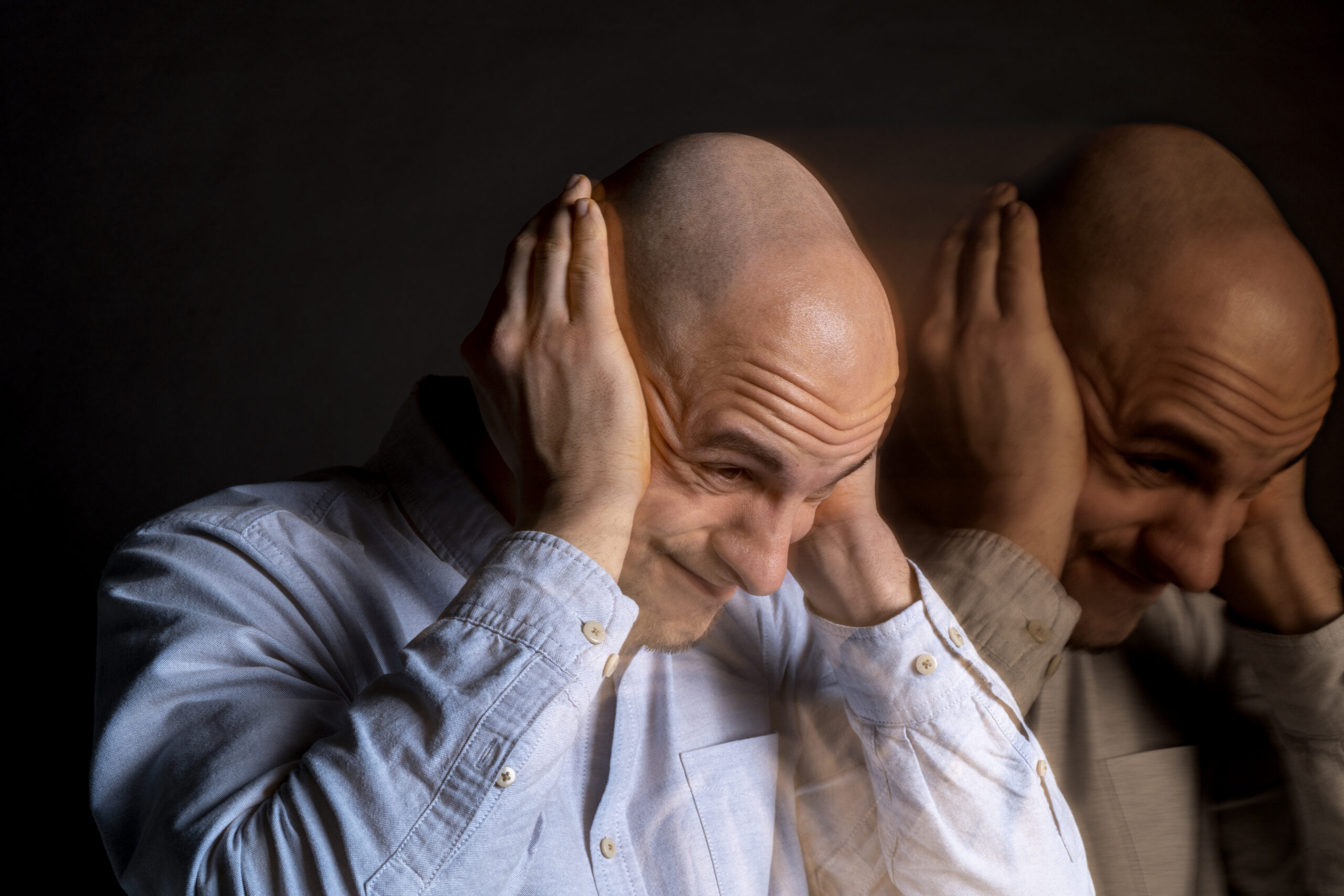
Another division of schizophrenia symptoms![]() :
:
Delusions![]() are mental disorders that affect reality. A person with schizophrenia sees things that do not exist or perceives certain situations in a way that is contrary to reality. No one can convince the patient that it is different than they think. The patient treats people who try to explain something to them – as enemies.
are mental disorders that affect reality. A person with schizophrenia sees things that do not exist or perceives certain situations in a way that is contrary to reality. No one can convince the patient that it is different than they think. The patient treats people who try to explain something to them – as enemies.
Some common delusions in individuals with schizophrenia include:
Hallucinations![]() involve the senses: hearing, sight, smell, touch, and taste. The patient experiences sensory perceptions that are not triggered by any external stimuli. This includes auditory hallucinations such as hearing knocking, murmuring, or tapping sounds that are not present. The patient may also hear male or female voices, monologues, or dialogues that compel them to perform certain actions. It is important to note that some voices may instruct the patient to commit harmful acts like suicide or crime
involve the senses: hearing, sight, smell, touch, and taste. The patient experiences sensory perceptions that are not triggered by any external stimuli. This includes auditory hallucinations such as hearing knocking, murmuring, or tapping sounds that are not present. The patient may also hear male or female voices, monologues, or dialogues that compel them to perform certain actions. It is important to note that some voices may instruct the patient to commit harmful acts like suicide or crime![]() .
.
Another symptom of schizophrenia is pseudohallucinations, where the patient hears voices in their head or from their body that they believe they are talking to. Both auditory hallucinations and pseudohallucinations are common symptoms of schizophrenia, along with delusions.
A slow disappearance of participation in professional and school activities and disturbances in contact with others characterizes them. The patient loses interest in things that used to give them satisfaction (hobbies) and avoids being around people. Interpersonal communication causes the patient more and more problems; expressing emotions, gestures, and facial expressions are impaired. Negative symptoms![]() can also include:
can also include:
This group of symptoms should be diagnosed and treated as soon as possible because these symptoms change the patient's plans and goals and disrupt the current lifestyle.
The patient has problems with memory![]() , intelligence, or concentration. Schizophrenics struggle with everyday activities; it is difficult for them to plan the day, let alone the week. They start to forget what they did today/yesterday, read sentences, and hear words and spoken phrases fly out of their head.
, intelligence, or concentration. Schizophrenics struggle with everyday activities; it is difficult for them to plan the day, let alone the week. They start to forget what they did today/yesterday, read sentences, and hear words and spoken phrases fly out of their head.
They are closely related to delusions and hallucinations and the negative symptoms they cause. Mood disturbances are often accompanied by grief, sadness, and dissatisfaction with everyday life. These feelings have nothing to do with reality or illness situations. They are contradictory to the situations experienced by the schizophrenic.
The patient often laughs in serious or sad situations and vice versa. Affective disorders![]() may be accompanied by perhaps post-psychotic depression, which occurs during the relief of symptoms or after the symptoms of psychosis have disappeared. Post-psychotic depression goes hand in hand with indifference, sadness, loss of interest, and joy. The person should be monitored in this case, as suicidal thoughts/acts may occur.
may be accompanied by perhaps post-psychotic depression, which occurs during the relief of symptoms or after the symptoms of psychosis have disappeared. Post-psychotic depression goes hand in hand with indifference, sadness, loss of interest, and joy. The person should be monitored in this case, as suicidal thoughts/acts may occur.
It concerns the thinking process![]() of the schizophrenic. The patient has a problem understanding the situation around them, people's behavior, and words. The patient's behavior is disturbed – they are often chaotic and bizarre, and their actions and gestures are inadequate to the given situation.
of the schizophrenic. The patient has a problem understanding the situation around them, people's behavior, and words. The patient's behavior is disturbed – they are often chaotic and bizarre, and their actions and gestures are inadequate to the given situation.
The course of the disease is not the same in every patient with schizophrenia. That is why there are different types of schizophrenia![]() .
.
Paranoid schizophrenia![]() is manifested mainly by delusions and hallucinations. The course of development of this form of schizophrenia is dynamic, often involving auditory hallucinations in which the patient believes. The patient may also suffer from delusions of persecution, olfactory or bodily hallucinations, poor thinking, or unstable mood.
is manifested mainly by delusions and hallucinations. The course of development of this form of schizophrenia is dynamic, often involving auditory hallucinations in which the patient believes. The patient may also suffer from delusions of persecution, olfactory or bodily hallucinations, poor thinking, or unstable mood.

Residual schizophrenia is observed in people diagnosed with the disease. It is the stage in which the symptoms are withdrawn, and mood disturbances and strange behavior of the patient dominate. Productive symptoms (hallucinations, delusions) do not occur. Even if the primary symptoms of the disease have lessened, there is still a possibility of recurrence. Therefore, residual schizophrenia is considered a chronic condition that requires ongoing treatment.
This form of schizophrenia is quite rare. Patients suffer from psychomotor disorders, are agitated, and have inexhaustible energy or remain immobile. There is also a state of catatonic![]() stupor – the patient can stay in one position for many hours, in complete immobility.
stupor – the patient can stay in one position for many hours, in complete immobility.
Hebephrenia includes distracted speech and inappropriate behavior, a tendency to engage in multi-threaded and long statements about nothing, and abstract thinking. The patient has a problem with keeping the conversation in check, says things that are inadequate to the situation, and is off-topic, they often jump from thread to thread.
Schizophrenia is diagnosed![]() based on a thorough psychiatric examination. There are no blood tests or imaging tests that allow one to make a diagnosis of the disease – but psychiatrists have special scales and questionnaires.
based on a thorough psychiatric examination. There are no blood tests or imaging tests that allow one to make a diagnosis of the disease – but psychiatrists have special scales and questionnaires.
It is worth noting that in the diagnosis of schizophrenia, the time criterion is significant – to diagnose this entity, positive or negative symptoms of schizophrenia should persist for at least a month.
A patient with suspected schizophrenia may undergo various tests and examinations – their conduct is justified by the fact that it is necessary to exclude other potential causes of the patient's symptoms.
Schizophrenia should be differentiated with:
Treatment of schizophrenia is quite a complex aspect. The basis of therapy is pharmacotherapy, but also psychotherapy. Patients with schizophrenia require chronic treatment.
Therapy![]() is carried out mainly on an outpatient basis. Sometimes hospitalization is necessary – this is especially in the case of new diagnoses of the disease in a situation where the patient's psychotic symptoms are severe.
is carried out mainly on an outpatient basis. Sometimes hospitalization is necessary – this is especially in the case of new diagnoses of the disease in a situation where the patient's psychotic symptoms are severe.
In addition, sometimes other possibilities are also used – e.g., electroconvulsive therapy, used in some patients with an extremely severe course of schizophrenia.
The main drugs used in treating schizophrenia are antipsychotics![]() (neuroleptics). However, these measures primarily affect the positive symptoms of schizophrenia, which is why there is a need to implement other therapeutic interventions in patients, such as psychotherapy or psychoeducation.
(neuroleptics). However, these measures primarily affect the positive symptoms of schizophrenia, which is why there is a need to implement other therapeutic interventions in patients, such as psychotherapy or psychoeducation.
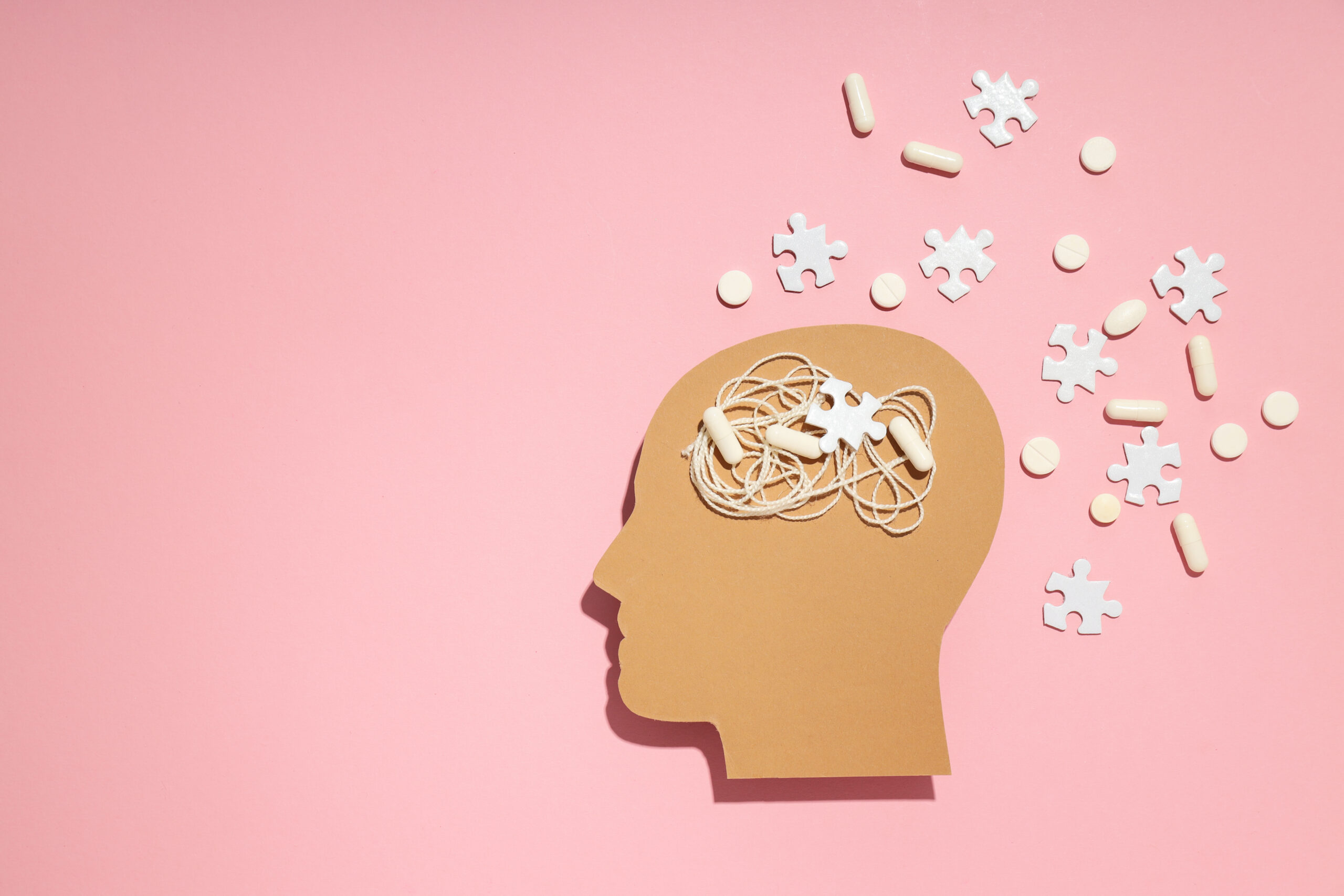
The prognosis![]() of people with schizophrenia who are treated is estimated differently.
of people with schizophrenia who are treated is estimated differently.
Therapy is often successful in achieving adequate progress for approximately one-third of patients, allowing them to function close to normal. Another one-third of patients experience some improvement, but it may not be fully satisfactory.
Unfortunately, statistics show that the remaining one-third of treated patients with schizophrenia do not experience any improvement in their clinical condition.
It is crucial to initiate treatment for schizophrenia early, not only because the disease impairs patient functioning but also because it increases the chances of successful treatment.
Schizophrenia increases the risk of committing suicide – according to some studies, this risk for patients with schizophrenia reaches as much as 10%.
It is also alarming that schizophrenia can lead to a significant shortening of patients' life expectancy![]() .
.
Table of Contents
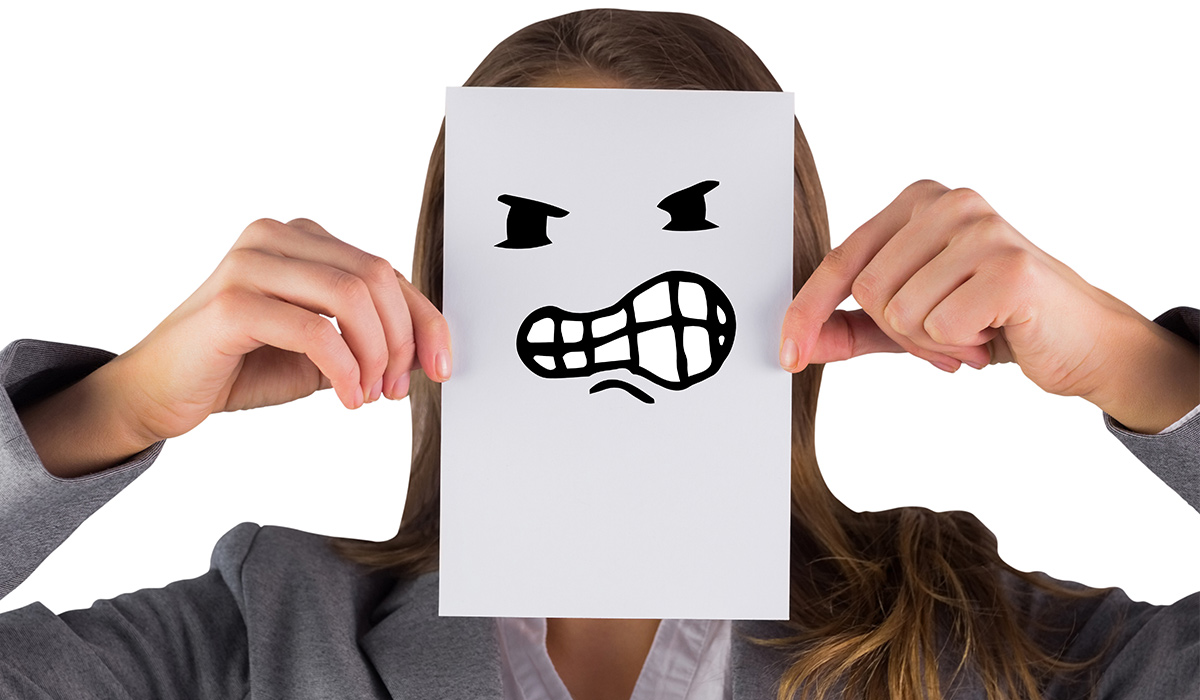
Schizophrenia is a psychotic disorder characterized by several groups of symptoms. The signs of schizophrenia may be present all the… read more »
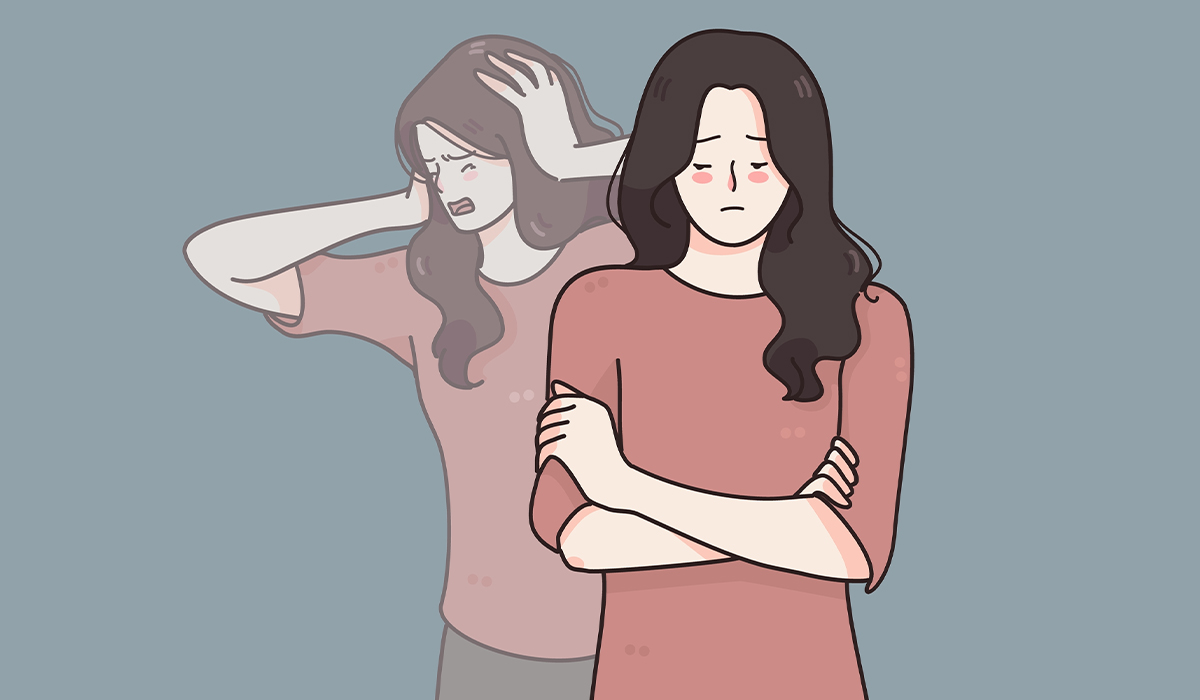
Psychosis (psychotic disorder) causes serious disorganization of behavior, thinking and perception of reality. What are its causes? What is the… read more »
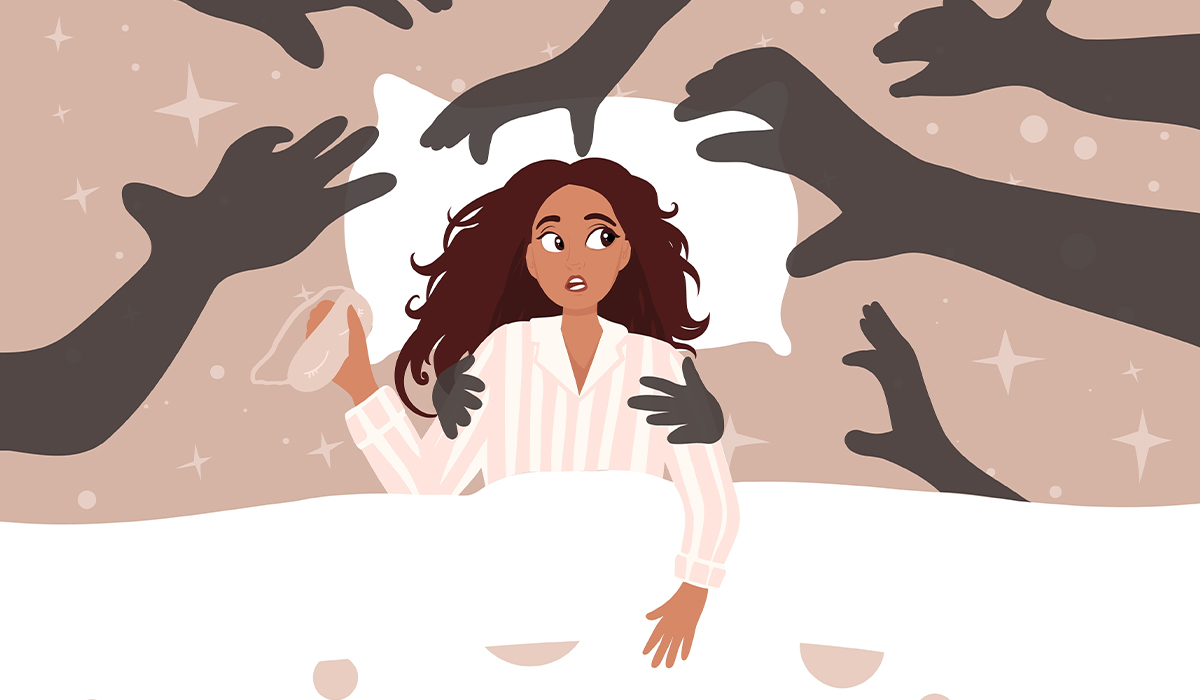
Sleep paralysis is a condition in which you experience a feeling of inertia of the entire body. What are the… read more »
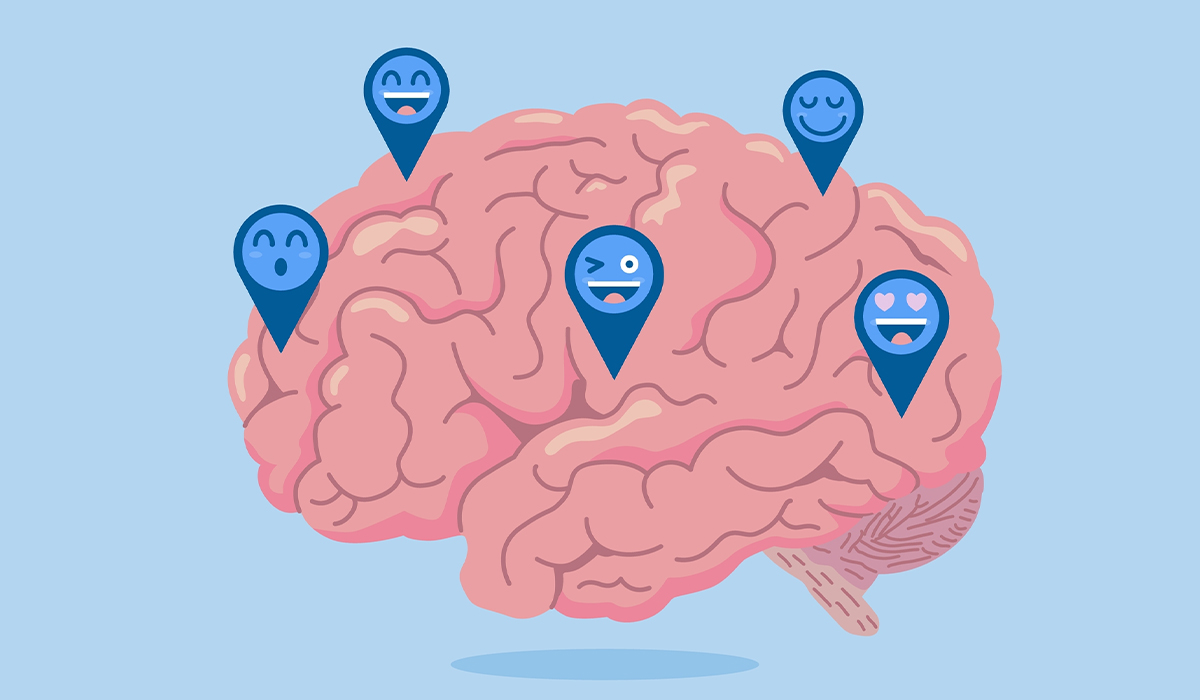
Dopamine is a chemical compound with various functions in the human body. Its levels affect overall health. Learn more about… read more »

Narcolepsy is a disease of sudden, involuntary sleep attacks during the day. What are the other symptoms of the disease?… read more »
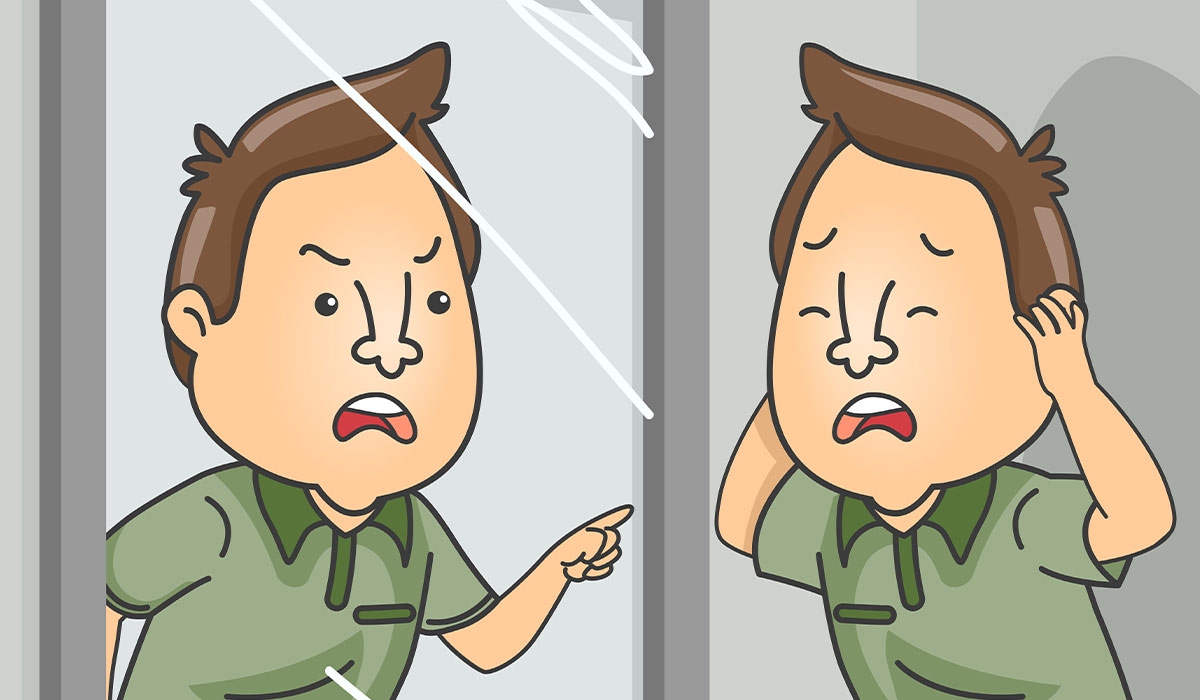
Dissociative identity disorder Ii is characterized by the presence of at least two independent and different personalities in one person.… read more »

Living with Lewy body dementia can be difficult. However, proper diagnosis, treatment and care can greatly improve a patient's quality… read more »
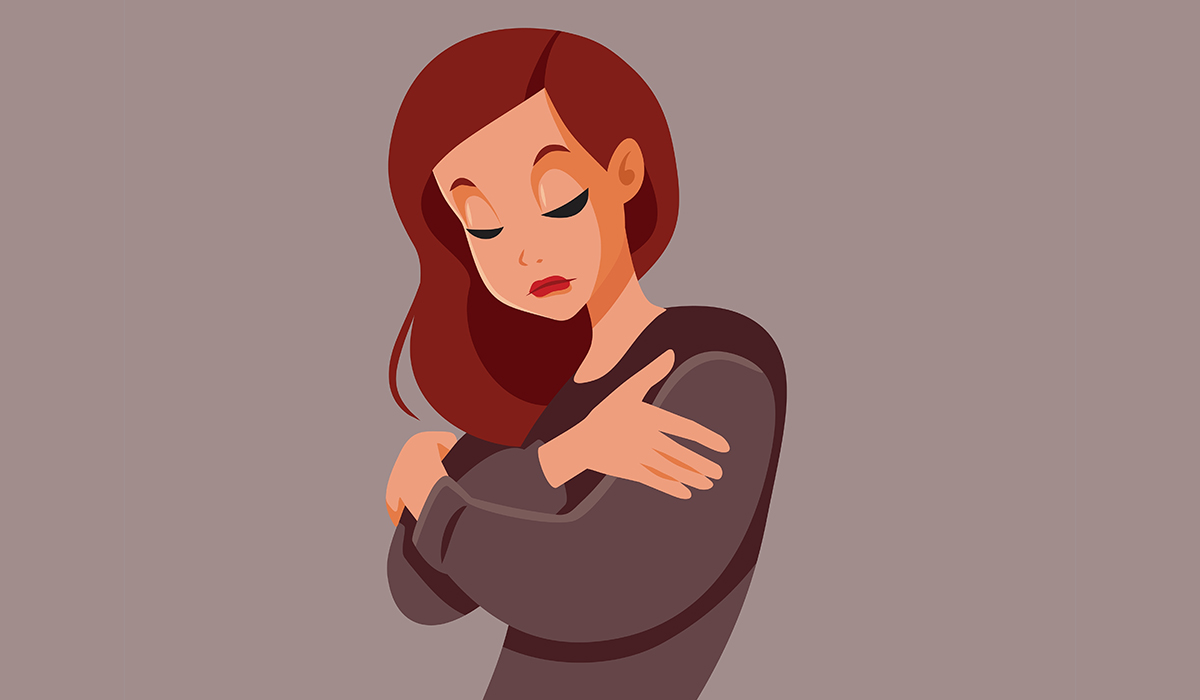
Dysmorphia is a mental disorder associated with a negative body image. It is a common problem these days. Learn how… read more »
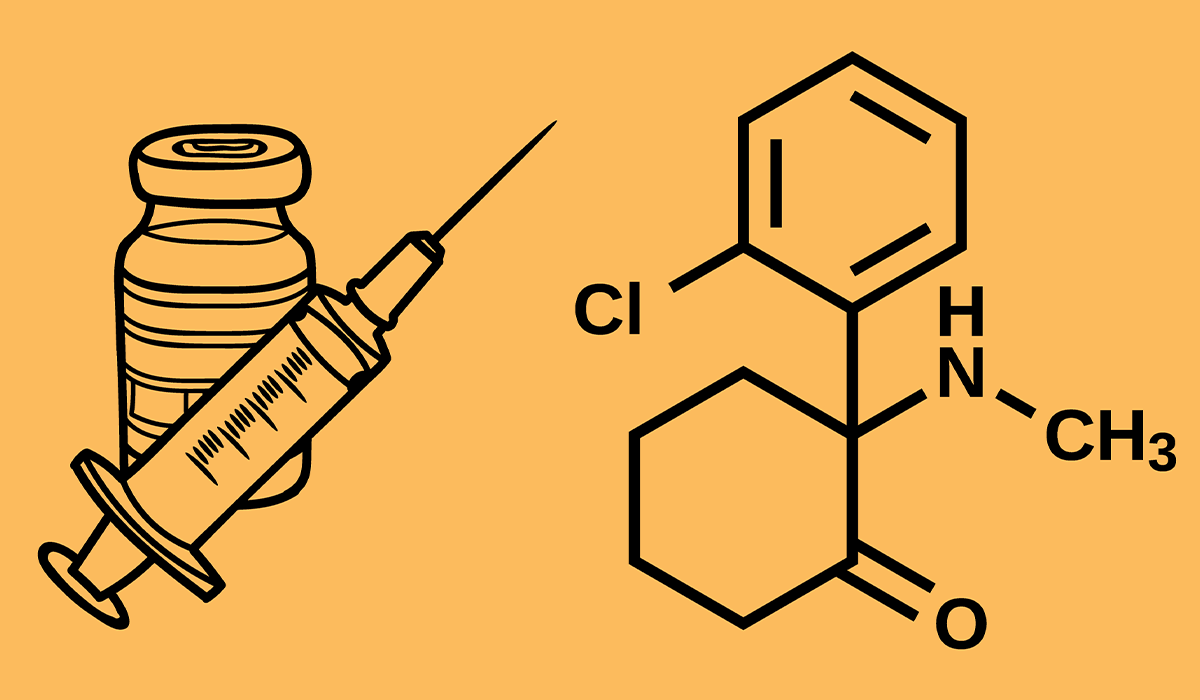
Ketamine is a drug used for anaesthesia or treatment of various conditions. However, the substance can pose risks. Find out… read more »